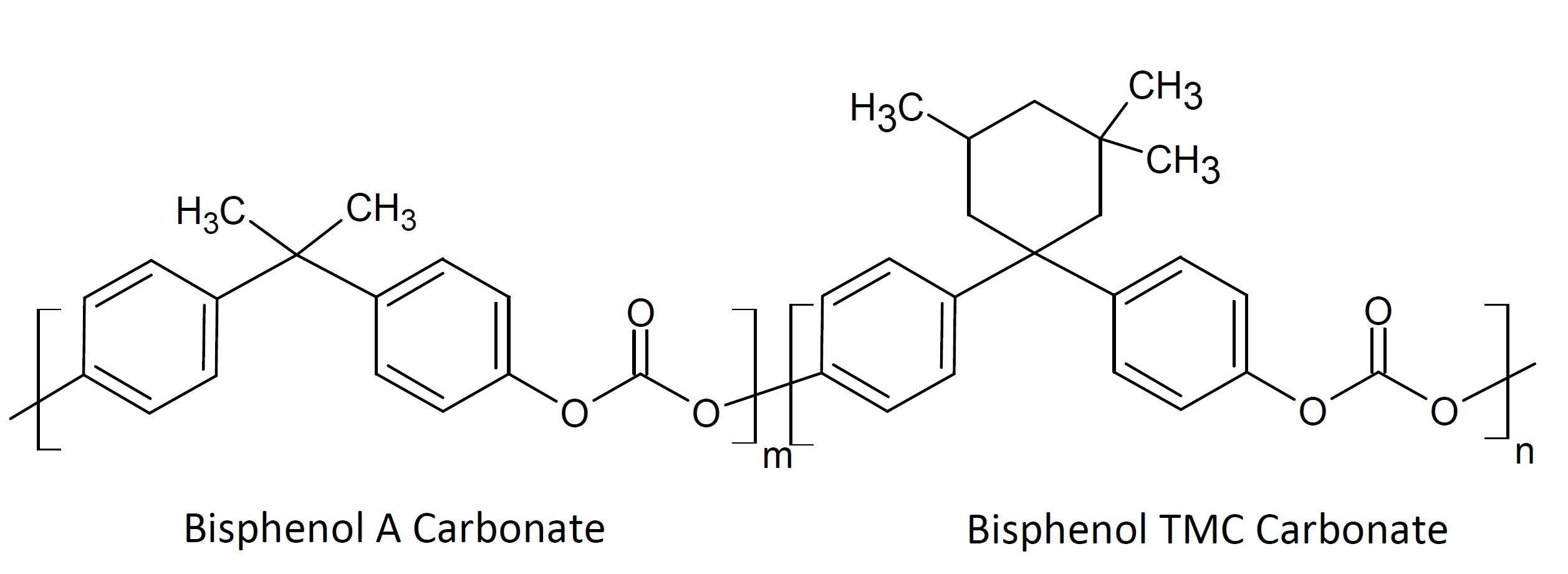Heat Resistant Polycarbonate (PC-HT)
Properties and Applications
Heat resistant polycarbonate, abbreviated as PC-HT, is a specialty engineering thermoplastic, produced by coreacting phosgene with bisphenol A and bisphenol TMC. Like ordinary PC, this amorphous copolycarbonate has exceptional high light transmittance and brilliance, very high low-temperature impact strength, good dimensional stability and good creep resistance. However, it has much better heat resistance than regular polycarbonate and can withstand temperatures between approximately -30°C and 150°C for extended periods of time. It also possesses good chemical and stress crack resistance and is biologically inert.1 On the downside, PC has poor scratch and solvent resistance and a tendency to yellow when exposed to UV light for prolonged time. Furthermore, exposure to hot water leads to gradual chemical degradation causing a reduction in impact strength and elongation at break.

This highly heat resistant PC can be injection-molded or extruded at processing conditions that are very similar to those used for standard polycarbonate.
Heat resistant PC is used for applications where excellent transparency and toughness combined with high heat resistance are required or advantageous. It finds applications in many industries including automotive, medical, electronics and domestic appliances. Examples include headlamp reflectors and lenses, reflectors for indicator- and rear lights, lamp covers for tumble dryers, cooker hoods, front panels for electric cookers, socket housings, signal lamp systems, covers for industrial lamps, dentists operating lamps, housings for halogen and spot lights, contact lens holders, hot steam sterilization safety valves for respiratory aids, and medical vessels and packaging.2
PC-HT has a continuous upper service temperature of at least 135°C and retains useful mechanical properties between -30°C and 140°C or greater depending on the grade.
Manufacturers & Distributors
Companies |
Brands |
1The chemical and stress crack resistance depend on the stress level of the parts, the service temperature and the concentration
and type of the solvent. PC-HT are typically not resistant to aromatic hydrocarbons, ammonia, amines and aqueous alkaline solutions.2
2Covestro Apec Brochure, COV00072344, Edition 2016-03